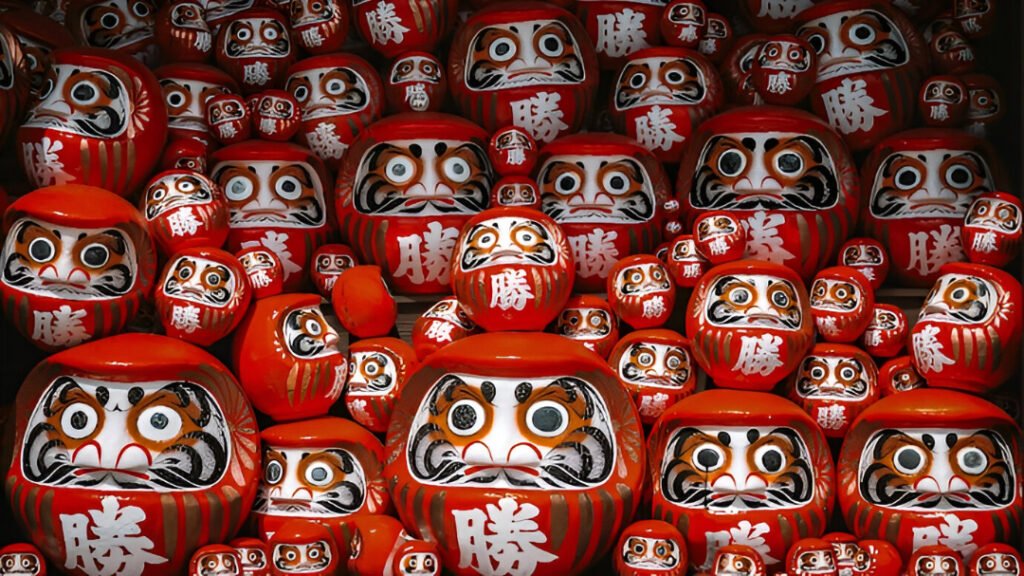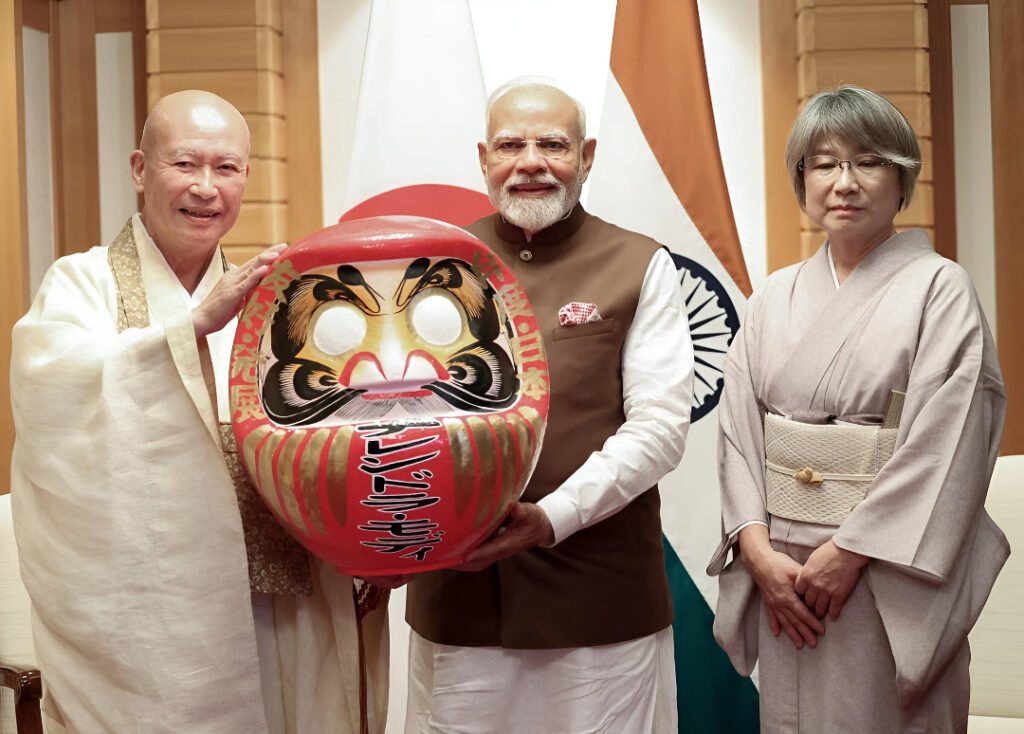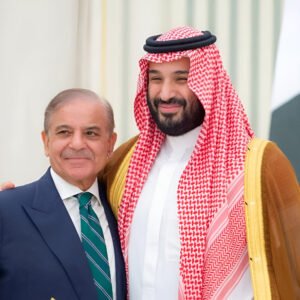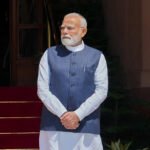During his Japan visit on August 29, 2025, Prime Minister Narendra Modi was presented with a Daruma doll by Rev. Seishi Hirose, chief priest of Shorinzan Daruma-ji Temple—a customary gift that symbolizes perseverance, good luck, and the fulfillment of goals.
The Daruma doll is more than a souvenir: rooted in Zen Buddhism and linked (via legend) to the Indian monk Bodhidharma, it’s a cultural bridge between Japan and India. Gifting a Daruma to a visiting head of government signals goodwill and confidence in the recipient’s aims—in this case, reinforcing the India–Japan strategic partnership and shared long-term goals.

What is a Daruma doll? Origins and symbolism
A Daruma (だるま) is a hollow, rounded papier-mâché doll modeled after Bodhidharma, the 5th-century monk credited with bringing Zen Buddhism from India to East Asia. Its squat, limbless design makes it self-righting—a visual metaphor for resilience captured by the Japanese proverb nanakorobi yaoki (“seven times down, eight times up”). Traditionally painted red, Daruma figures vary in color and size depending on region and purpose.
How Daruma are used—the one-eye ritual and goal setting
When acquired, a Daruma’s eyes are usually left blank. The owner sets a goal or vow, then paints in one eye; the doll then serves as a constant reminder of that commitment. On achieving the goal, the second eye is filled in as a ritual closure. This practice—common in business, personal projects, and political campaigns—turns the doll into a tangible tracking device for perseverance and accountability.
Political and diplomatic use—why leaders receive Daruma
Daruma have a long public life in Japan’s political and commercial culture. Politicians have traditionally used large Daruma during election drives: they fill one eye before a campaign and mark the second upon victory. Presenting a Daruma to a foreign leader is a ceremonial way to express hope for success and enduring cooperation—an apt gesture in Modi’s case as India and Japan pushed forward on infrastructure, technology, and manufacturing collaborations during the summit.
The Modi gift—context and immediate meaning

Rev. Seishi Hirose of Shorinzan Daruma-ji presented the doll to Prime Minister Modi at a public diplomatic engagement in Tokyo. Japanese outlets and the Indian press noted the symbolic resonance: beyond wishing personal good fortune, the temple’s gift emphasized shared civilizational links (Bodhidharma’s Indian roots) and a cultural nod to the perseverance required for strategic projects such as economic partnership and defense cooperation. Modi observed the doll closely and accepted the blessing as part of the ceremonial exchange.
Cultural notes and common questions
- Why no limbs? Legends say Bodhidharma lost the use of his limbs after long meditation; the doll’s form evokes that story and the idea of unwavering focus.
- Why are the eyes blank? Leaving the eyes blank creates a ritual contract between the giver/owner and the goal—a promise made visible.
- Are Daruma religious? While rooted in Buddhist lore, Daruma are widely used in secular contexts as motivational charms. Temples like Shorinzan produce them both for devotees and for visitors seeking good luck.
What’s next—how the gift may be used symbolically
Diplomatically, the Daruma is likely to appear in official photographs and can be referenced rhetorically as a symbol of bilateral resolve—for instance, when leaders announce multi-year roadmaps or commit to manufacturing and technology targets. If the Modi government chooses to follow the tradition literally, a first eye might be filled to mark the setting of a specific bilateral goal, and the second eye later when milestones are met—a neat visual narrative for sustained cooperation.
According to reporting by NDTV and India Today, Prime Minister Modi received a Daruma doll from Rev. Seishi Hirose of Shorinzan Daruma-ji Temple during his Japan visit; background on the doll’s history and ritual use is drawn from the Daruma-makers’ site and cultural overviews (daruma.jp, JapanObjects) and encyclopedic entries summarizing Bodhidharma’s connection to Zen.
Conclusion
The Daruma doll gifted to PM Modi is a compact emblem of perseverance, intention, and cross-cultural connection. Far from being a mere trinket, it blends religious folklore, civic ritual, and diplomatic theater: a reminder that some diplomatic messages work best through simple, resonant symbols—and that the process of turning goals into achievements is as much cultural as it is political. If the two nations’ leaders treat the Daruma’s eye-painting tradition earnestly, future announcements may feature a small painted pupil as proof that a shared objective has arrived.











